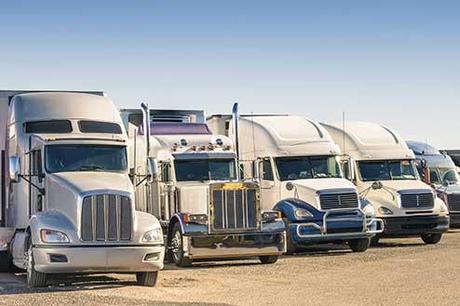As companies look for ways to stay competitive, evaluating the type of fleet they operate should be considered. With regulations growing more stringent, costs escalating and changing market conditions, there are many factors to consider when choosing between owning a fleet or using a dedicated fleet.

A private fleet provides companies with more control along with the advantages of guaranteed capacity, supply chain control and operational visibility. Owning a fleet can also lead to the option of additional revenue by shipping goods for other companies when capacity allows.
However, a private fleet can also lead to added expenses from maintenance, increased vehicle downtime due to aging fleets and additional time and resources needed to keep up with rigorous compliance and regulatory requirements. Other challenges private fleets face include the worsening driver shortage, rising fuel costs, supply volatility, and fluctuations in customer requirements, demand and staffing.
Going dedicated enables businesses to:
- Reduce distribution costs through a right-sized fleet to reduce equipment costs, weekly miles and save on fuel and labor.
- Drive efficiencies by getting the capacity and flexibility a business needs to ramp up and scale down during peaks and valleys.
- Improve on-time delivery performance with a reliable fleet and drivers. If a driver is sick or a truck breaks down, the issue can be resolved without disrupting service.
- Free up manpower by transferring the risks of safety and regulations compliance to the dedicated fleet and taking the distractions away from your business.
- Get up-to-date data from on-board computers that track mileage, on-time performance and fuel efficiency.
Choosing to switch to a dedicated fleet gives businesses the advantages of owning their own fleet without dealing with the challenges that could stifle their bottom line.
For those considering switching from a private fleet to dedicated, consider these questions:
- Does your fleet have unique or complex distribution requirements?
- Does your freight require custom vehicle specifications or special handling?
- Do you have to coordinate multiple stops and complex routes?
- Would consolidating your operations and reducing empty miles improve revenue?
- Are you having issues with the driver shortage, driver turnover or less than truckload (LTL) capacity?
- Do you need additional services such as warehousing, natural gas or yard management?
- Are you having issues finding backhauls for your private fleet?
- Is it difficult to adjust your driver and tractor capacity as volumes change?
After an evaluation of your fleet and the factors above, shippers will be better equipped to decide whether owning a private fleet or switching to a dedicated fleet is in the best interest of the company.
Jorge Salas is Vice President of Ryder Dedicated™ Operations (West) for Ryder System, Inc. Jorge is responsible for managing a portfolio of more than 70 customers across multiple industries including the newspaper, food and beverage, retail, and building materials markets in the Western United States.

